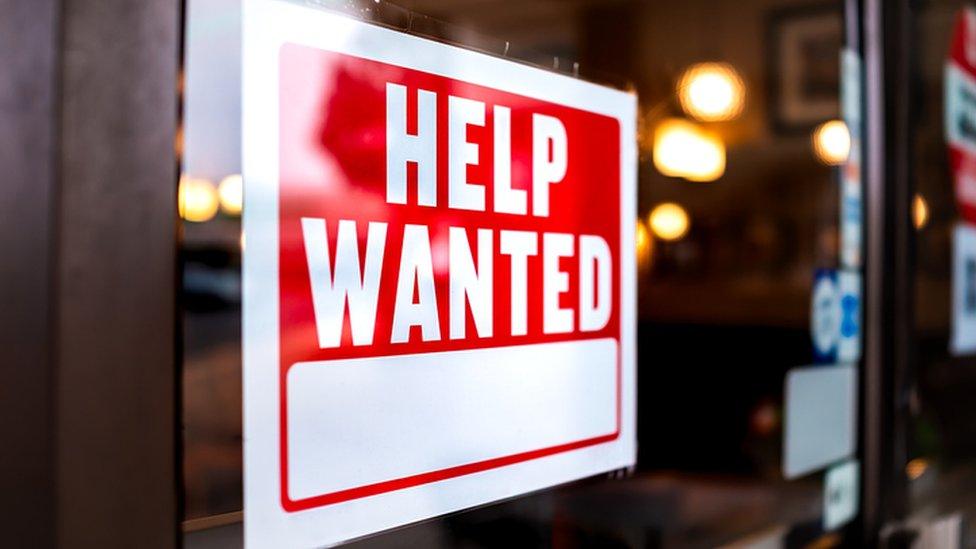Scottish firms raise prices 'at sharpest rate for 22 years'
- Published
- comments

Scottish firms raised prices last month at the sharpest rate since at least 1999 in the face of severe inflationary pressures, according to a survey.
The latest Royal Bank of Scotland purchasing managers' index (PMI) suggested companies were having to pass on the rising costs of materials, pay, logistics, Covid and Brexit.
Cost burdens were reported to be rising at their quickest rate since 2008.
RBS said firms raised average charges "to a degree unseen" in two decades.
The survey was compiled by IHS Markit from a panel of about 500 manufacturers and service providers.
On a positive note, the survey found manufacturing and service sector output rose for a seventh straight month.
However, September saw the slowest rate of increase for five months, as a sustained upturn in services was slightly offset by a renewed fall in manufacturing output.
For the sixth time in as many months, inflows of new work rose, with respondents linking the latest uplift with strong client demand, in part due to the relaxation of lockdown restrictions.
Although still sharp overall, expansion eased to its slowest rate since April, as sustained growth at services firms was partially offset by a fresh decline in manufacturing order book volumes.
The pace of expansion in new business across Scotland was broadly in line with the UK average.

Meanwhile, the survey highlighted a sustained rise in Scottish private sector employment. Panellists linked the latest upturn in staffing levels to higher workloads. Furthermore, the rate of job creation accelerated to a four-month high and was sharp overall.
Scotland also registered the third-quickest increase in employment across the 12 monitored UK areas in September, behind only London and Wales.
RBS Scotland board chairman Malcolm Buchanan said Scotland's private sector "remained on a growth footing" in September but some momentum had been lost due to fresh reductions in both output and order book volumes at goods producers.
He added: "Although the latest data does indicate a slight slowdown in growth, the third quarter as a whole nonetheless saw to one of the quickest expansions of the private sector on record and it remains in a strong position as we enter the closing months of the year."
'Something has to give'
Colin Borland, director of devolved nations for the Federation of Small Businesses, said currently two-thirds of firms were reporting an increase in running costs compared with this time last year.
He added: "In businesses who have very little, if any, headroom, something has to give. If every ounce of fat has already been trimmed, if every efficiency has been maxed out, then unfortunately you are going to have to look at price rises."


There's lots to welcome about the latest data on the Scottish economy. The PMI tells us that there's been a sustained recovery out of the winter lockdown.
July to September was one of the strongest quarters for economic growth that we've ever seen. The economy was reopening, and people were out spending.
Growth was inevitable, although its strength in early summer surprised some forecasters.
It was also a certainty that the pace would slow down. It could not be sustained.
Combined disruptions
But what was less easy to forecast were the combined disruptions that have made price inflation one of the main concerns: Brexit making it uneconomic for some to continue trading across the North Sea, supply shortages, shipping costs and delays, the haulage driver shortage, wage inflation and an energy price boom.
These have not worked their way through the system. Price inflation is now being forecast to rise sharply next spring, when the cap on domestic heating costs is due to be raised next, probably by hundreds of pounds for the average gas-heated home.
Gas prices have come down off an exceptional peak, but remain well ahead of the start of this year. Oil prices are continuing to rise. With labour shortages, it seems likely that wage inflation has barely begun.
The questions now are how long this is sustained, and will action be required by central banks to rein in price inflation?
- Published12 July 2021

- Published8 July 2021
